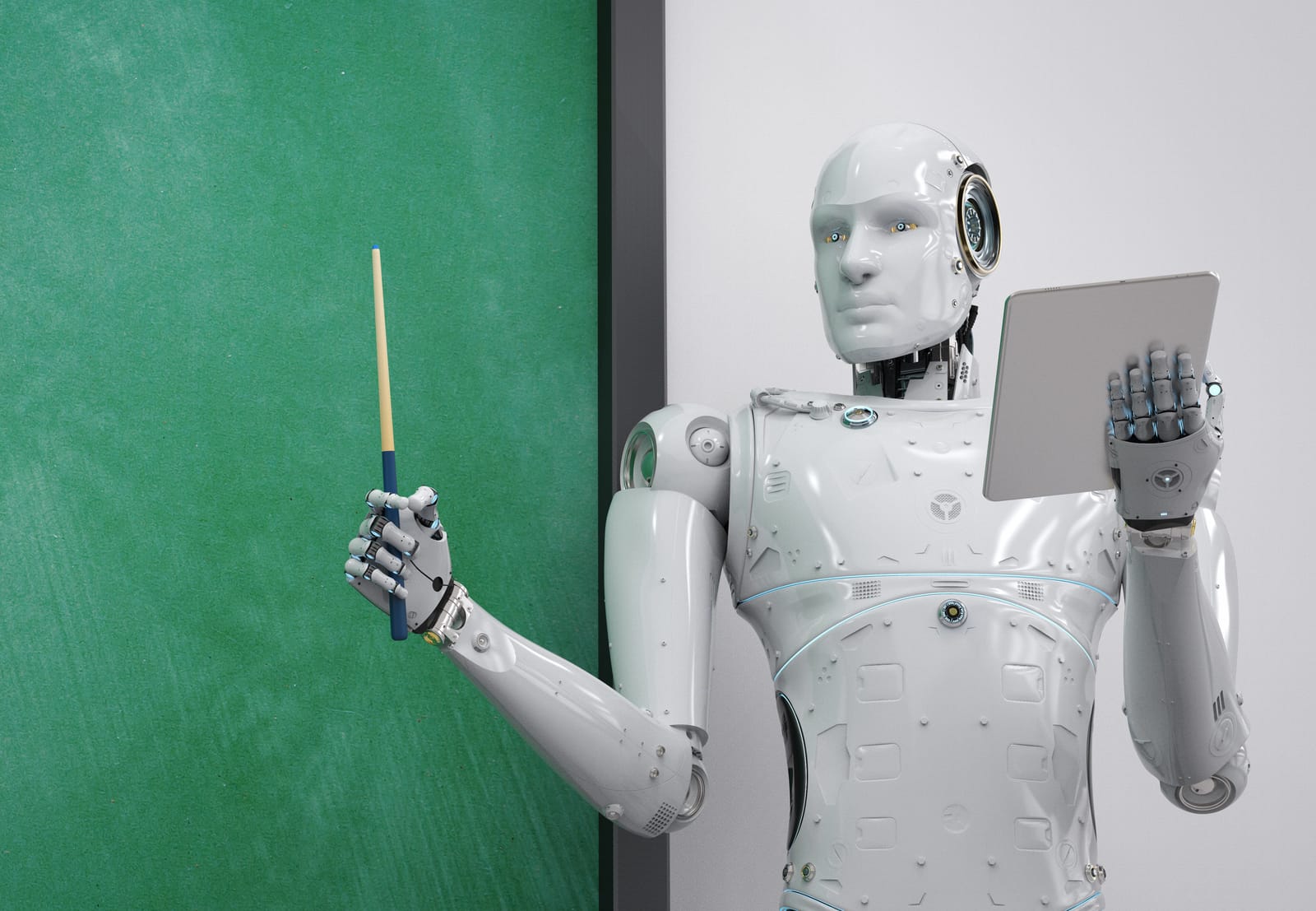
The next 20 years will see teachers under increasing pressure to convincingly justify their existence. Advances in artificial intelligence (AI) technologies are already prompting calls for teaching to be automated, learner-driven and ‘teacher-proof’. While these technologies might still require non-specialised classroom facilitators and technicians, the role of the highly trained expert teacher is coming under increasing threat. There's a growing sense that “we don’t really need teachers in the same way any more”.
Put bluntly, the entire premise of ‘the teaching profession’ faces an impending challenge. In a future where education can be reliably provided by machines, why continue to invest millions of dollars in training human experts to do the job? Given the likely trajectory of technological developments over the next few decades, is there anything that an expert teacher does that machines will never be able to do? As an education researcher and teacher, I'd like to think that there is! Here, then, are six aspects of expert human teaching that are getting overlooked in the current rush toward automating the classroom:
1. Human teachers have learned what they know
There is clear benefit from being with someone who can pass on knowledge, especially someone who's previously been in the position of having to learn that knowledge. This latter qualification is a uniquely human characteristic. When a learner learns with an expert teacher, they're not simply gaining access to the teachers’ knowledge, but also benefiting from the teachers’ memories of learning it themselves. Technology can be pre-loaded with content of what is to be learned. Yet, no AI technology is going to ‘learn’ something exactly the way a human learns it, and then help another human learn accordingly.
2. Human teachers make cognitive connections
A human is uniquely placed to sense what another human is cognitively experiencing at any moment, and respond accordingly. In this sense, face-to-face contact with a teacher offers learners a valuable opportunity to engage in the process of thinking with another human brain. On one hand, there is something thrilling about witnessing an expert who's modelling the process of thinking things through. Conversely, a human teacher is also able to make a personal ‘cognitive connection’ with another individual who is attempting to learn. As David Cohen puts it, teachers are uniquely able to “put themselves into learners’ mental shoes”. Despite the best efforts of computer science, many aspects of thinking cannot be detected and modelled by machines in this way.

3. Human teachers make social connections
Teaching is a mutual obligation between teachers and learners. No teacher can stimulate the learning process without the cooperation of those who are learning. Good teachers make personal connections with their students, helping them gauge what might work best at any particular time. Before attempting to intellectually engage with a group, teachers will “take a mental pulse of students’ demeanours”. Teachers work hard to establish this mutual commitment to learning, as well as sustaining engagement through motivating, cajoling and enthusing individuals. All of these are interpersonal skills that come naturally to people rather than machines.
4. Human teachers talk out loud
There is something transformative about being in the presence of an expert teacher talking about their subject of expertise. Listening to an expert talk can provide a real-time, unfolding connection with knowledge. A good speaker doesn't stick rigidly to a written text, but refines, augments and alters their argument according to the audience reactions. A teacher speaking to a group of learners therefore engages in a form of spontaneous revelation. Key to this is the teacher’s role in leading and supporting learners to engage in active listening. As Gert Biesta reasons, being addressed by another person interrupts one’s ego-centricism – drawing an individual out of themselves and forcing them into sense-making.
Good teachers make personal connections with their students, helping them gauge what might work best at any particular time.
5. Human teachers perform with their bodies
The bodies of human teachers are an invaluable resource when engaging learners in abstract thought. Teachers use their bodies to energise, orchestrate and anchor the performance of teaching. Many subtleties of teaching take place through movement – pacing around a room, pointing and gesturing. Teachers make use of their ‘expressive body’ – lowering their voice, raising an eyebrow or directing their gaze. Crucially, a human will respond to the living biological body of another human in a completely different way to even the most realistic simulation. Being looked in the eye by another person is a qualitatively different experience than being looked at by a 3D humanoid robot, let alone a 2D cartoon agent on a screen.
6. Human teachers improvise and ‘make do’
A key part of good teaching is the human capacity to improvise. Rather than sticking tightly to a pre-planned script, teachers will adjust what they do according to the circumstances. Like most performative events, teachers approach a session with a rough plan or structure. However, thereafter they improvise their way around these aims and objectives. Teaching requires acts of creativity, innovation and spontaneity – akin to dancing or playing jazz. Teachers and learners feel each other out, find common ground and build upon it. Teaching also demands a tolerance for imprecision, messiness and not knowing. Most human actions involve a degree of guesswork, bluff and willingness to ‘make do’. These are processes of which computer systems are largely incapable.
As these examples illustrate, an expert human teacher is able to support learning in ways that can never be fully replicated through technology. Unfortunately, these qualities remain largely unrecognised, even by teachers themselves. Many educators consider teaching to be an ‘unconscious’ act that is difficult to pin down and articulate. Yet such coyness does little to dispel the technology-driven arguments currently being made against the teaching profession. Teachers need to speak up and make an irrefutable case for the continued presence of expert professionals at the forefront of classrooms.
An expert human teacher is able to support learning in ways that can never be fully replicated through technology. Unfortunately, these qualities remain largely unrecognised, even by teachers themselves.
So how can we rehabilitate human teachers in the minds of their detractors? The uphill battle in countries such as Australia is to revitalise schools and classrooms to allow teachers to work in the ways just outlined. These are all characteristics that a good teacher should have, but are considerably restricted in an era of ‘teaching out-of-field’, templated lesson plans and rigid standardised testing.
A first step in this direction might be to alter the ways that people think and talk about teaching. Teachers need to speak forcibly about these qualities – among themselves, within their professional associations, with parents, politicians, pundits and anyone else with influence. Teachers also need to argue directly against the tech industry and corporate reformers looking to replace them with machines. There is obvious value in the human expert teacher. Yet unless teachers are able to make a convincing case, they may well lose the argument before they even realise that there was one.
This article originally appeared on EduResearch Matters. Read the original here.
Monash University Faculty of Education is home to Education Futures, an innovative think tank that undertakes cutting edge translational research, conducts roundtables, forums and other events for educators and policy makers, and regularly publishes ‘thought leadership’ pieces in current and future priority areas of educational practice.





